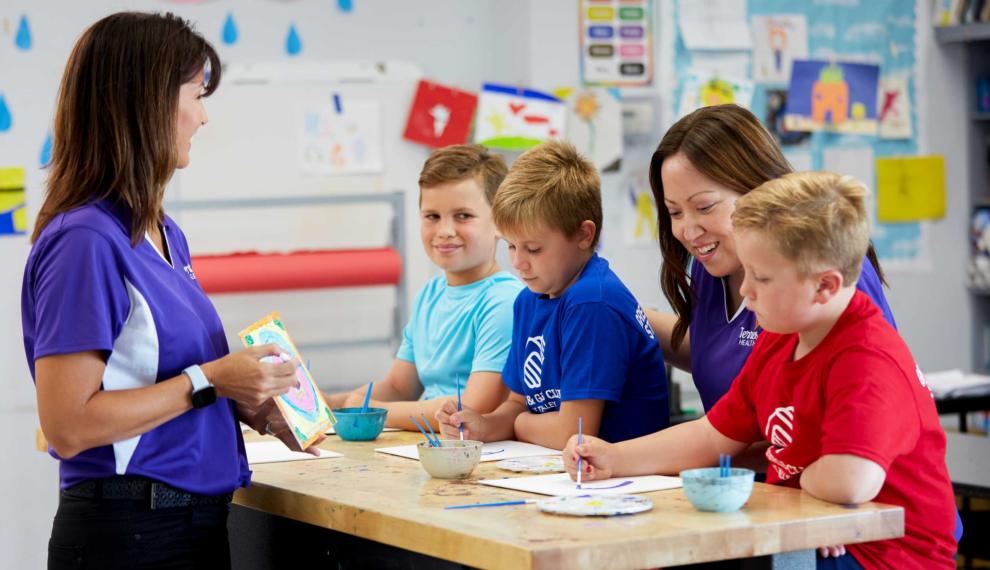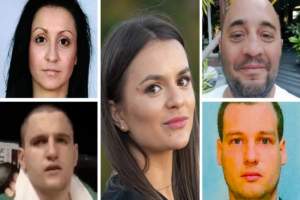Ariana Ruof arrived at one of the Boys & Girls Clubs in the East Valley as a bright-eyed, 13-year-old volunteer who wanted to make a difference. Almost a decade later, she returned to the organization, which she described as her “home away from home.” Now, she is working at the Grant Woods Branch in Mesa.
“It just brings such a positive perspective to your life,” Ruof said about Boys & Girls Clubs, which help young people develop skills to succeed. “Seeing the change in the kids and knowing that you get to be there for them.”
Boys & Girls Clubs were among The Arizona Republic’s first Season for Sharing grantees after the annual fundraising campaign launched in 1993.
Readers of The Arizona Republic raised more than $1.6 million during the 2022-23 Season for Sharing campaign. Nonprofits applied for those dollars, which were distributed to more than 150 groups across Arizona. Boys & Girls Clubs of the Valleyreceived $20,000, and Boys & Girls Clubs of Greater Scottsdale received $12,000.
That Season for Sharing funding went to the Boys & Girls Clubs’ academic support programs for low-income youth. One of these educational endeavors is Youth of the Year, a recognition program for “exceptional young adults who embody the traits that Boys & Girls Clubs works to instill.”
Ruof was selected for Youth of the Year in 2014and, as a result, got a full ride for college at Arizona State University. Ruof is now in a Ph.D. program and working as one of the Boys and Girls Clubs of the Valley’s mental health coaches, a role created in the wake of the COVID-19 pandemic, which led to a drastic rise in depression, anxiety and other mental health challenges in children.
Mental health coaches are on the frontline of the Boys & Girls Clubs of the Valley’s Whole Child Approach, a pilot program that aims to provide young people with skills to improve their emotional well-being. Mental health support is being built into regular club programming and activities.
Boys & Girls Clubs of the Valley has contracted with Terros Health, which has offered mental and primary care health services in Arizona for more than 50 years, for mental wellness coaches like Ruof. The $9 million Whole Child Approach program is being funded by federal American Rescue Plan funds, the Bob & Renee Parsons Foundation, the Diane & Bruce Halle Foundation and the Virginia G. Piper Charitable Trust.
“This is a way to identify the challenges our kids are experiencing without judgment or stigma,” said Karen Tepper, president and CEO of Terros Health, in a statement when the program was announced in October 2022. “The idea is to fill in the gaps for mental health services and improve access to treatment.”
Boys & Girls Clubs of the Valley has implemented the Whole Child Approach program at more than a dozen club locations in Maricopa and Pinal counties. The organization expects the program to be in place at all 30 of its clubs by the end of 2025, when it will be reevaluated.
Yvette Medina, the Whole Child Approach program manager, said the program’s highest priority is teaching club members healthy coping skills they can take into adulthood. Mental health coaches also serve as a reminder for club members that “we’re here for you,” said Kim McWilliams, the senior director of clinical excellence and children’s operations at Terros Health.
Club member Miley Hawkins, a high school sophomore, said that without the support of the Boys & Girls Clubs, she would likely procrastinate on her school work and not have much academic motivation.
“I’d probably fall really behind because that’s what I was doing prior to COVID,” Miley said.
Her Boys & Girls Clubs location in Glendale helped preserve her academic and mental well-being during the height of the pandemic, she said.
“To be able to come here and know that your friends or your peers are in the same boat as you, you feel less stressed and less alone,” Miley said.
Ruof said she considers Boys & Girls Clubs her respite from her doctoral program. Ruof said she feels fulfilled being able to act as a mentor and that the positive energy of the club members she works with is contagious.
“I’m just really grateful that I get to be here and kind of have this like full circle experience,” Ruof said. “The opportunities that I got, now I get to give it all back.”
Source: Yahoo News










